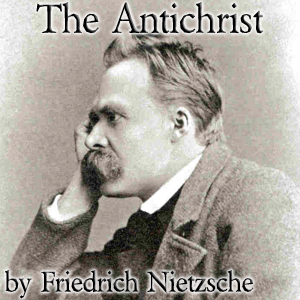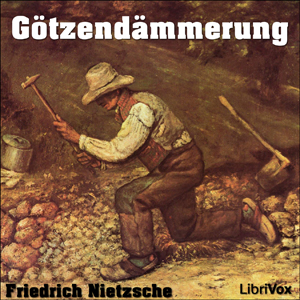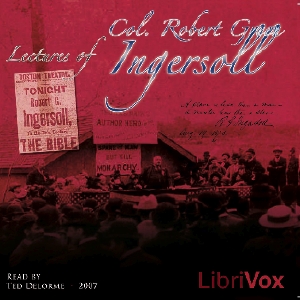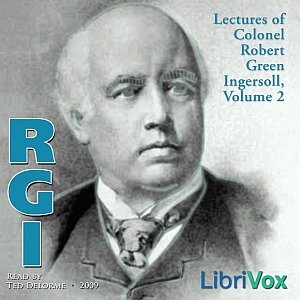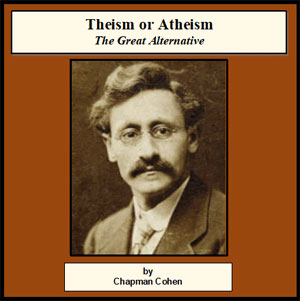Save for his raucous, rhapsodical autobiography, Ecce Homo, The Antichrist is the last thing that Nietzsche ever wrote, and so it may be accepted as a statement of some of his most salient ideas in their final form. Of all Nietzsche’s books, The Antichrist comes nearest to conventionality in form. It presents a connected argument with very few interludes, and has a beginning, a middle and an end. The reason to listen to this version is that H.L. Mencken, the famous journalist, turned Nietzsche's German into such direct, plain-spoken American English that it puts the haranguing philosopher right up in your face.
8 episodes
Diese kleine Schrift ist eine grosse Kriegserklärung; und was das Aushorchen von Götzen anbetrifft, so sind es dies Mal keine Zeitgötzen, sondern ewige Götzen, an die hier mit dem Hammer wie mit einer Stimmgabel gerührt wird, - es giebt überhaupt keine älteren, keine überzeugteren, keine aufgeblaseneren Götzen... Auch keine hohleren... Das hindert nicht, dass sie die geglaubtesten sind; auch sagt man, zumal im vornehmsten Falle, durchaus nicht Götze...
(aus Friedrich Nietzsches Vorwort zur Gützendämmerung)
15 episodes
Colonel Robert Green Ingersoll was a Civil War veteran, American political leader and orator during the Golden Age of Freethought, noted for his defense of atheism. This book is the first of two volumes collecting Ingersoll's speeches.
18 episodes
A second volume of lectures by the most famous orator of the 19th century. Ingersoll was a tireless crusader for the dignity of humanity, and a relentless opponent of organized religion. (Summary by Ted Delorme)
26 episodes
Published posthumously in 1919, this collection of diary entries presents a scathing picture of army life and is said to be one of the most vivid accounts of daily life in the trenches. It chronicles West's increasing disillusion with war and his move toward pacifist and atheist beliefs. The final part consists of his powerful war poems, including God, How I Hate You, You Young Cheerful Men, and Night Patrol. West was killed by a sniper in 1917. In view of some of his poems, one wonders if death was not unwelcome. (Introduction adapted from Wikipedia by Ruth Golding)
6 episodes
George William Foote, a British secularist, was convicted and imprisoned on the charge of blasphemy after founding "The Freethinker", a magazine that, despite the best efforts of the 19th Century British judicial system, is still going strong. "Prisoner for Blasphemy" is a memoir of his several trials and final imprisonment in Holloway Gaol. Although Foote's was the last prominent blasphemy case in England, his hope that the blasphemy law would soon be abolished was not to be realised until almost a century after his death, in 2008. (Summary by RobBoard)
18 episodes

My Path to Atheism is a remarkable document in many ways, not least that it was written by a woman in Victorian England, not the most open free-thinking of societies, especially for women at that time. It needed a remarkable woman to write such a revolutionary and to 19th century minds, heretical document in a society where the Church had such a stronghold. Besant herself was originally married to a clergyman, but her increasingly anti-religious views and writings led to a legal separation. She went on to become a member of the National Secular Society and thence to co-edit the National Reformer, which put forth ideas on revolutionary ideas at the time such as trades unions, national education, birth control and so on. In 1877 Besant published this book 'My Path to Atheism' which was compiled from a series of lectures in which she surgically dissects the basic tenets of Christianity. As one reads the chapters, one can follow the evolution of her ideas from Theism to Atheism, ending up with a stunning refutation of the Church of England Catechism. (Summary by Kevin Green)
26 episodes
A thought-provoking treatise from 20th century English freethinker, atheist and secularist writer, Chapman Cohen. Here, he lays out the development of the god-idea from primitive to modern times, and makes a compelling argument for atheism over theism or agnosticism. - Summary by J. M. Smallheer
16 episodes
